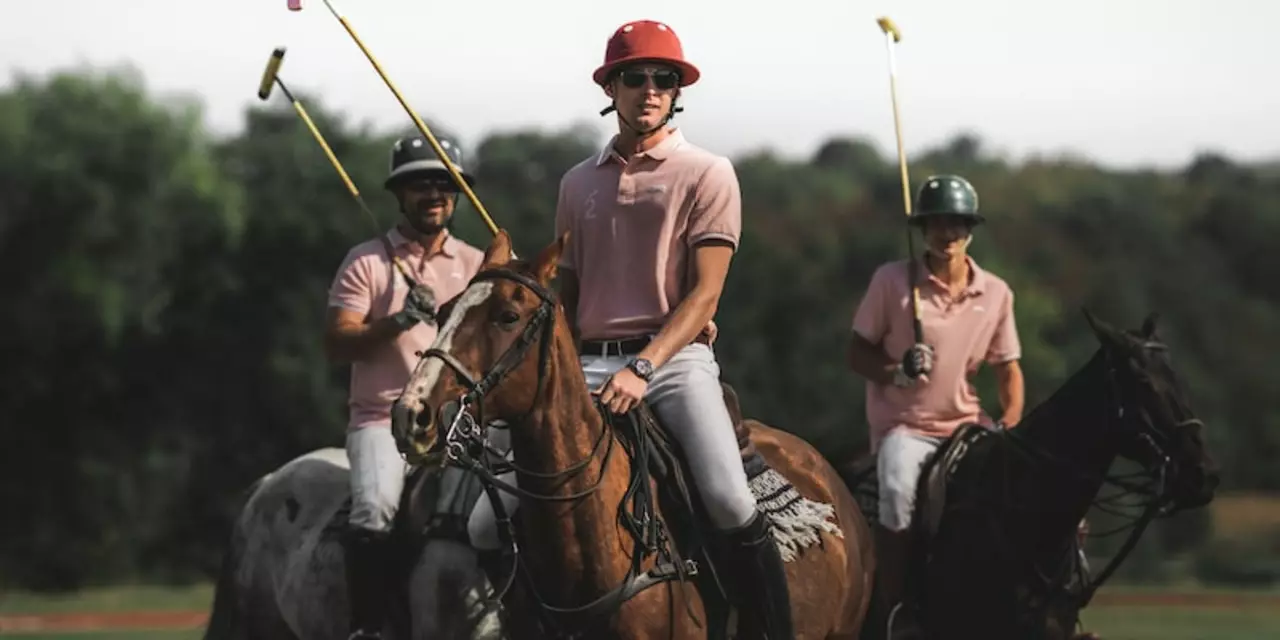
Introduction
If you’re a fan of polo, then you know how important it is for a player to have the right horse and know how to ride it. But do players ever switch horses during a match? The answer is yes – sometimes they do switch horses in the middle of a game. It's not common, but it can happen when necessary. In this article, we'll take a look at why players might switch horses and what skills are needed for successful horse switching. We'll also discuss some of the ethical considerations that come into play when changing horses during a match. Read on to find out more about this fascinating aspect of the sport!
Description of polo
Polo is a sport that is played on horseback. The game is played between two teams of four players each, and the objective is to score goals by using a long-handled mallet to hit a small ball through the opposing team's goal.
Polo originated in Persia, and it is thought to have been developed as a training game for cavalry units. It eventually spread to other parts of Asia and Europe, and it has been a popular sport for centuries.
Polo is still played today in many different countries around the world. It is particularly popular in Argentina, Brazil, Chile, China, India, Pakistan, and the United States.
Polo is a sport that has been around for centuries. It is thought to have originated in ancient Persia, and it was later adopted by the British during their colonial period. Polo is played on horseback between two teams of four players each. The objective of the game is to score goals by hitting a ball into the opposing team's goal using a long-handled mallet.
The game of polo is very fast-paced and requires a great deal of skill and coordination from both the riders and their horses. Polo ponies are specially trained for the sport and are incredibly athletic and agile. They must be able to make quick turns and stops, as well as maintain a fast pace for an extended period of time.
Polo ponies are not ridden with traditional saddles, but rather with a special polo saddle that allows the rider more freedom of movement. The rider also uses a short whip to cue the pony during the game.
Polo games can last anywhere from 30 minutes to several hours, depending on the level of competition. At the professional level, polo matches are typically divided into six seven-minute periods, called "chukkers."
Polo is a sport that is played on horseback. The object of the game is to score goals by hitting a small white ball with a long-handled mallet. Polo is believed to have originated in ancient Persia, and it is now played in countries all over the world.
Polo is typically played on a field that is 300 yards long and 160 yards wide. The game is divided into four periods, or chukkers, each lasting seven minutes. There are four players on each team, and each player has a different position on the field. The positions are numbered from one to four, with number one being the most forward position and number four being the farthest back.
Players can score goals from anywhere on the field, but most of the action takes place near the goal posts. To score a goal, a player must hit the ball between the two uprights of the goal with his or her mallet. The team that scores the most goals in a match wins.
How frequently do players switch horses?
In polo, players typically switch horses every 6 to 7 minutes during a game. This allows the horses to rest and prevents them from getting too tired. It also allows the players to try different horses and see which ones work best for them.
Why do players switch horses?
When it comes to horse sports, switching horses is nothing new. Players do it all the time in show jumping, eventing, and dressage. But why? Why do players switch horses?
There are a few reasons why players might switch horses. The first reason is that they might not be getting along with their current horse. If a player is constantly having difficulty with their horse, it might be time to try someone new.
The second reason players might switch horses is for financial reasons. If a player can no longer afford to keep their horse, they may have to sell them and buy a new one.
The third reason players might switch horses is because they want to try something new. Maybe they’ve been riding the same horse for years and they’re ready for a change. Or maybe they’ve just seen another horse that they’re interested in trying out.
Whatever the reason, switching horses is a common occurrence in the world of horse sports. So if you find yourself needing to make a switch, don’t worry – you’re certainly not alone!
When it comes to horseback riding, there are a variety of different disciplines that riders can choose to pursue. Polo is just one of many options, and within the sport of polo there is a significant amount of strategy involved in order to be successful. One of the key components to success in polo is having a well-trained horse that suits the rider's individual playing style.
Players who are new to the sport of polo may not have their own horse and will need to borrow or rent one from a club or another player. As they become more experienced and start to develop their own playing style, they may find that the horse they originally borrowed or rented is no longer suitable for their needs. At that point, they may decide to switch horses in order to find one that better suits their playing style.
Players who have been competing at a higher level may also switch horses from time to time in order to stay competitive. As the sport of polo evolves, new strategies and techniques are developed and players need to be able to adapt quickly in order to remain successful. Having a horse that is properly trained for the current state of the game can give players a significant advantage, so it's not surprising that even the best riders occasionally switch horses in order to stay ahead of the competition.
What are the benefits of switching horses?
One of the benefits of switching horses is that it allows the player to have a fresh horse with more energy. Additionally, it can help the player to change up their strategy if they feel like their current horse is not working well for them. Switching horses can also be a way for the player to rest their own body, as they are not carrying all of the weight and strain while riding.
Conclusion
To sum it up, yes, polo players do switch horses during a match. This is due to the fact that the horses need frequent rests and breaks in order to remain healthy and perform at their best for the duration of the match. Horse switching also gives each player an opportunity to pick one suited for their style of play or as a strategic move against their opponents. With such flexible rules and regulations in place, horse switching has become an essential part of polo matches all over the world.

Write a comment